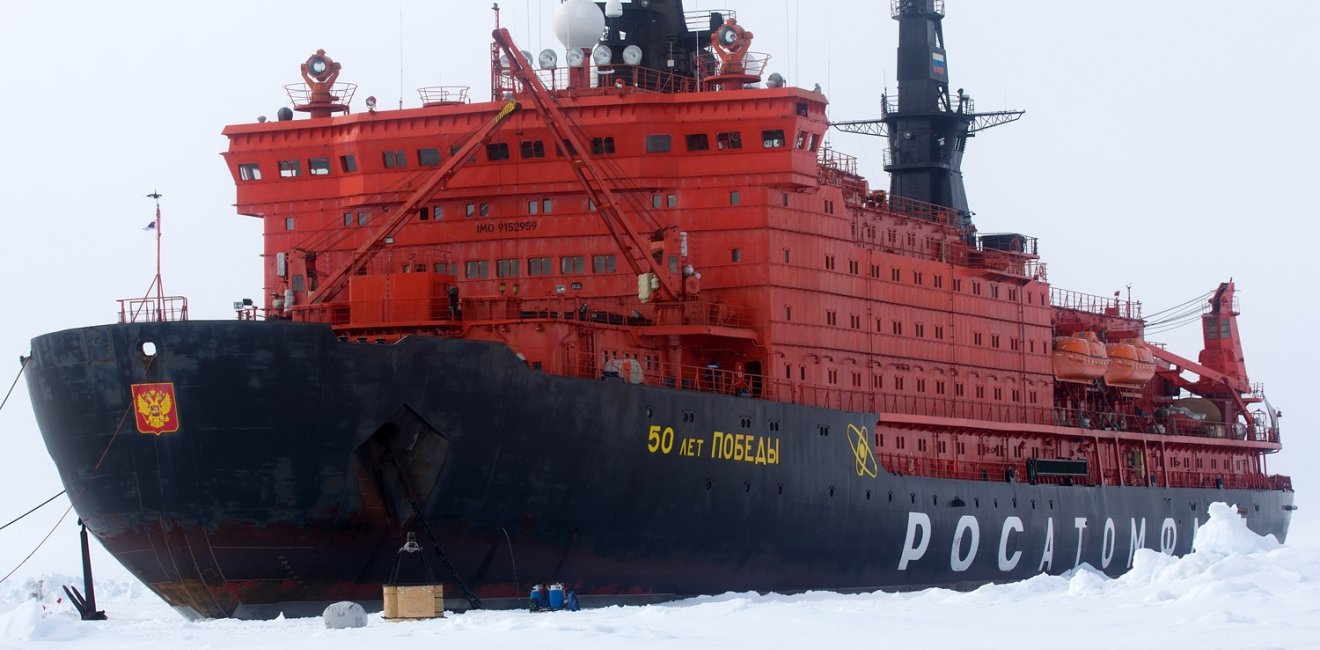US, Russia Can Look North to the Arctic to Find Common Ground
A region of unparalleled cooperation, the Arctic may hold the key to improving US-Russian relations.
A region of unparalleled cooperation, the Arctic may hold the key to improving US-Russian relations.

When Donald Trump and Vladimir Putin met face-to-face on Monday, Russia’s election interference, its annexation of Crimea and the implications of Cold War-style espionage in the United Kingdom provided most of the backdrop.
It’s likely that few, if any, of either president’s advisors, let alone commentators, are looking to the Arctic — yes, the Arctic — as a starting point for common ground and improving relations going forward.
There is no doubt these two leaders have a full range of vexing global issues, disagreements, challenges and controversies to address. Our differences are real.
We even remain on guard in the Arctic where Russia has expanded and enhanced its military assets and, reminiscent of the Soviet Era, perhaps even returned to the great game played under the Arctic ice cap with submarines.
Yet, other than the International Space Station, the Far North is perhaps the only setting in which the United States and the Russian Federation cooperate today on a wide variety of issues.
These two practical examples of cooperation might provide a foundation upon which both sides can regain some trust and positive momentum in their bilateral relationship (that is, if there is will on both sides to do so).
If such momentum could be sustained over any meaningful period of time, it may create a more functional context to address other pressing and multilateral issues of global importance.
In a time when we are experiencing the daily acidification of both domestic and international politics, the US and Russia have worked together with the six other Arctic nations to negotiate and sign a binding research agreement to facilitate the conduct of research in the Arctic.
The International Maritime Organization (IMO) recently approved a joint US-Russian proposal for ship-routing measures in the Bering Strait, a shared, international waterway with increased marine activity that divides the two maritime states.
The recently established Arctic Coast Guard Forum has brought all eight Arctic states closer together to address their shared challenge in search and rescue operations in the region. The two nations signed an international agreement banning fishing in the Central Arctic Ocean until researchers have a clearer picture of what lies beneath the ever-shrinking icecap.
At the Arctic Council, an intergovernmental forum of the Arctic states now chaired by Finland, the US and Russia cooperate on initiatives related to environmental protection and sustainable development. Perhaps this short list of cooperative efforts is not sexy, and therefore, not as newsworthy as other matters.
But, in today’s reality, it is a positive record of common ground, common interests, consistent communication and engaged dialogue in what is now a globalized Arctic.
What we have here is a base to build on our troubled relationship. Both nations have stated the Arctic should remain a region of peace, shared importance and cooperation. Although other regional tensions dwarf the actions and dialogues that make these partnerships a reality, they should serve as a call to action.
President Trump and President Putin should embrace the call of their Finnish counterpart, President Sauli Niinistö, to include the Arctic when formulating diplomatic strategies following their private talks.
In fact, Presidents Trump and Putin should go one step further and reaffirm their shared commitment to the Arctic and direct their applicable agencies to advance other, practical initiatives in both bilateral and multilateral arrangements.
Build on Arctic cooperation and shared interests. For example, we know global commodity prices drive much of the economic activity in the Arctic, along with related infrastructure development and shipping activity.
The wise and measured development of such resources is in everyone’s interest. With nearly 20 percent of Russia’s GDP derived from its Arctic resource base, their Arctic strategy of development, investment and related security efforts along the Northern Sea Route, for instance, is clearly linked to Russia’s future economy.
Similarly, Alaska, America’s Arctic, plays an important role in the nation’s energy equation and national security. Both administrations have signaled, in their own way, a vision for the Arctic that includes development. Here we may find commonalities that enhance other related agendas.
So how can the US-Russia relationship move forward with enhanced cooperation in Arctic affairs? What opportunities can be jointly pursued and what fruitful strategies might Presidents Trump and Putin entertain after the Helsinki Summit?
But amid all the concerns and scandal — and perhaps even more so because of them — we shouldn’t forget an area of ongoing positive and productive relations between our two nations.
Clearly the recent agreements on Central Arctic Ocean fishing and research provide pathways for cooperation. Perhaps a joint Arctic marine expedition in the remote Central Arctic Ocean in support of the new fisheries agreement could be proposed?
The US and Russia could take the lead in the Arctic Coast Guard Forum (now chaired by Finland) in exploring enforcement issues with the new IMO International Code for Ships Operating in Polar Waters.
Renewed military-to-military cooperation could be feasible if the joint meetings were to focus on Arctic emergency operations, something more likely as shipping and development activities increase.
Presidents Trump and Putin could support renewed friendship flights and cultural exchanges between the indigenous communities that border our shared Bering and Chukchi Seas.
Coming out of the Helsinki Summit, most observers and analysts will be talking about US-Russian relations in the Arctic about as much as they did on the eve of the meeting: hardly at all. But amid all the concerns and scandal — and perhaps even more so because of them — we shouldn’t forget an area of ongoing positive and productive relations between our two nations.
Addressing practical Arctic maritime issues, enhancing collaborative research and linking our two nations to the economic opportunities in the region have merit.
The overarching goal is to maintain the Arctic as a peaceful region exemplified by broad cooperation among the Arctic states and perhaps serve as a foundation and framework for inching closer to a more productive relationship elsewhere in the world.
This article was first published by The Hill.



Since its inception in 2017, the Polar Institute has become a premier forum for discussion and policy analysis of Arctic and Antarctic issues, and is known in Washington, DC and elsewhere as the Arctic Public Square. The Institute holistically studies the central policy issues facing these regions—with an emphasis on Arctic governance, climate change, economic development, scientific research, security, and Indigenous communities—and communicates trusted analysis to policymakers and other stakeholders. Read more


